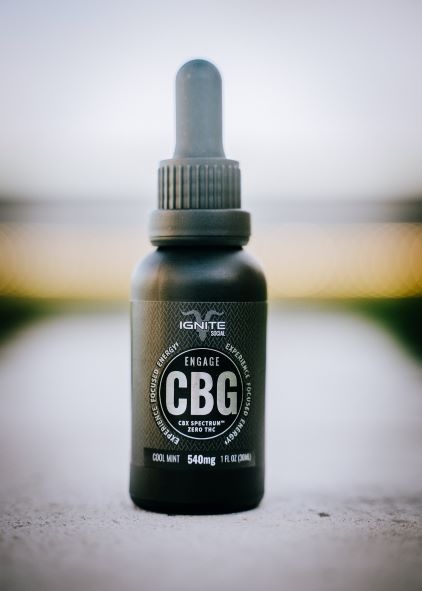CBD vs CBN vs CBG: learn the difference between cannabinoids
This is the most fun, exciting, and lucrative affiliate program you’ll ever join. Dan Bilzerian recently launched his Ignite VIP affiliate program and over 100,000 affiliates joined within just a few weeks. Many people are posting product photos, videos, and more promotions already and making money with this program. You can do this too and there’s a tremendous amount of opportunity. Whether you’re new to affiliate marketing, new to the products, or even new to making money online, we will show you how.
We’re looking forward to seeing you at Dan Bilzerian’s exclusive events, parties, and trips as you become a successful affiliate in this program by following our guidance and using our resources.
Again this affiliate program is free to join, there are no hidden costs, and there's a straightforward payment system so it’s easy for you to make money.

These different cannabinoids have specific characteristics and therapeutic properties. Understand the difference between them and pick the ones most fitting to your needs.
The landscape for medical marijuana has changed a lot in the past few years. After the regulation of CBD on a federal level, we can see a surge in studies related to the therapeutical properties of cannabis. New possibilities and new ways of serving treatment to people that deal with chronic diseases.
Besides CBD and THC, science is taking notice of the potential of other minor cannabinoids. Cannabinol (CBN) is one of those minor cannabinoids, that is created when marijuana strains age. Another cannabinoid that has raised interest is the cannabigerol (CBG). It is the precursor of essential cannabinoids like THC and CBD.
Explore the characteristics, differences, and uses of those cannabinoids.
CBD: a leading feature of the legal marijuana movement
Studies and applications of CBD lead the way for all the marijuana reforms throughout the U.S. and the World. In the past decades, science has discovered a wide variety of medical applications of cannabidiol in treating many illnesses. CBD helps treating symptoms of anxiety, pain, insomnia, epilepsy, and many other diseases while possessing anti-inflammatory, antioxidant, and neuroprotective qualities. CBD is also one of the few substances that has a proven neurogenic factor. Yes, cannabidiol can help your brain grow brain cells even in the adult phase.
It is a cannabinoid that is easily extracted from cannabis. From multiple genetics crossings, in today's marijuana space, there is a wide variety of marijuana strains that is rich in CBD, even in its flower form. Hemp oils, which are CBD-rich concentrates, with 0.3% THC or less, are even legal on a federal level and have been labeled as of essential use in this COVID-19 pandemic.
CBN: cannabis ages well, like fine wine!
Besides the famous CBD and THC, there are more than 100 other minor cannabinoids present in weed. CBN was actually the first cannabinoid to be identified by scientists. It can be produced when the cannabis strain ages, or via processing of THC. CBN doesn't have as much psychoactive effect as THC has. Scientific research diverges. Some researchers say CBN doesn't have psychoactive effects, while other studies suggest it has, but they are very mild.
The research into CBN is still not as developed as in THC and CBD studies, but they're picking up steam. The number of indications of CBN as a potential treatment to a myriad of illnesses grows day by day. Science says CBN has many essential properties. It is antibacterial, anti-inflammatory, anticonvulsant, and appetite stimulant. Research also suggests that CBN can play a role in bone healing and growth.
Even though aged marijuana strains have more sedative properties than younger strains, scientific opinions are still split between the CBN's role in that. Some credit this increased sedation to CBN, while other scientists believe CBN doesn't have sedative properties, and the increased sedation is a result of other factors.
CBG: the stem cell of cannabis
Cannabigerol, or CBG, is an acid that is present in marijuana strains ever since in the early stages of development of the flower. CBG is an acid, which its decomposition forms a variety of other smaller acids, and these acids formed from CBG can turn into either CBD, THC, and other cannabinoids. Stem cells can transform into every other cell of the human body. Cannabigerol has similar properties: it can turn into a wide variety of major and minor cannabinoids.
This property of cannabigerol is intriguing scientists and doctors. It promises a deeper understanding of cannabinoids and their features. Quickly, CBG is becoming a high demand item for many people prescribed with marijuana-based treatments, especially for neurological and psychiatric issues.
Research indicates that CBG boosts the "bliss" neuroreceptor, anandamide. This neuroreceptor plays a role in pain, depression, appetite, memory, and fertility. It is also being evaluated to treat Huntington's Disease, cancer, and bacteria like Staphylococcus.
A non-intoxicating cannabinoid, CBG is completely legal and safe to consume.
About The Author

Author: Bernardo De Biase
Bernardo De Biase is a passionate cannabis activist, writer, and lawyer from Brasil. Bernardo is a student of cannabis' history, therapeutical, and recreational use. As a pet lover, his favorite company for a good session is his two cats, and booming hip hop beats.

Make Money With Dan Bilzerian's Ignite VIP Affiliate Program
© IgniteAffiliate.com
Independent Ignite Affiliate
